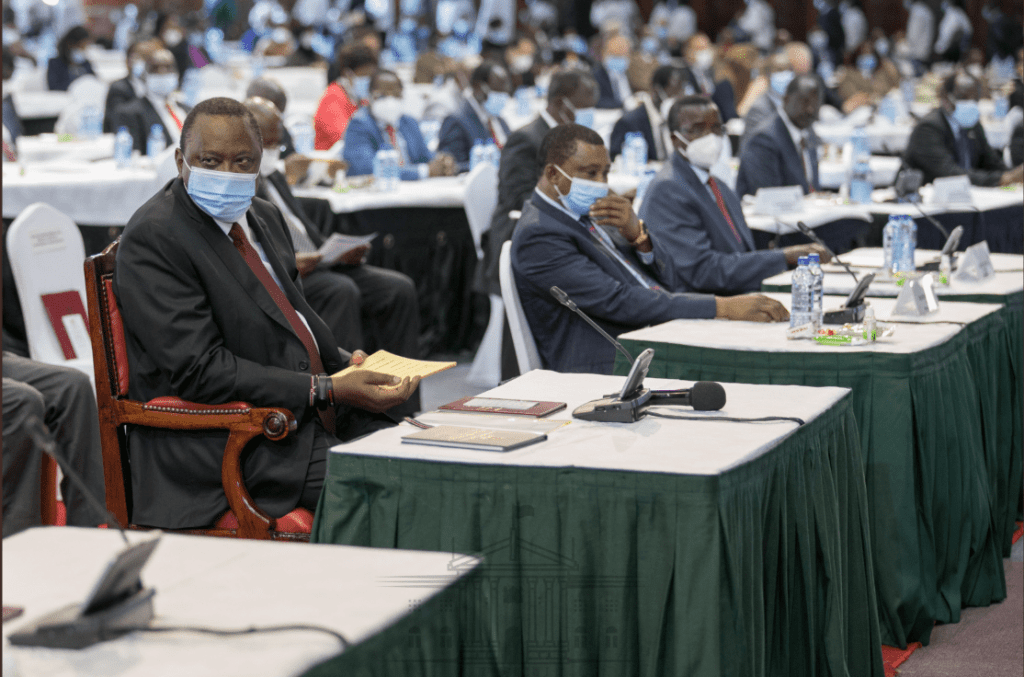About 10 million primary and secondary school children are staring at a lost academic year and delayed transition to next classes if learning does not start in the next two weeks.
The Standard has established that the next two weeks are critical in determining whether it would still be possible to recover lost school time, beyond which it would be difficult to salvage the academic year.
With Grade Four, Standard Eight and Form Four learners set to complete syllabus coverage and are guaranteed transition, Ministry of Education officials are pondering the consequences of keeping children at home, with potential backlog that would mess up education system.
After three failed attempts to open schools for Grade 1-3, Standard Five to Seven and Form One to Three due to unpredictable Covid-19 pattern, the stakeholders’ meeting chaired by President Uhuru Kenyatta today is set to make tough decisions.
Education Cabinet Secretary George Magoha said the meeting would kick start discussions that would decide the learners’ fate.
“There is consultation at every level of government and as you are aware President Uhuru Kenyatta will engage governors and other stakeholders on November 4,” said Prof Magoha.
The meeting, he said, would be a precursor to an education stakeholders’ meeting that will refine the details of resumption of learning for all learners.
“We shall then decide when to call our own internal stakeholders so that we make a decision for children who are at home,” he said.
It, however, emerged that lack of money to effectively support learners in schools is another factor that will be considered before the rest of learners are recalled.
Kenya Secondary School Heads Association (Kessha) Chairman Kahi Indimuli said only Sh500 per student was allocated towards management of Covid-19, leaving institutions exposed.
“Most of the schools are working within thin budgets to keep children safe in schools,” Indimuli said.
His Kenya Primary School Heads Association (Kepsha) counterpart Nicolas Gathemia said the Government did not allocate any money towards Covid-19 management for primary schools.
“They only disbursed the normal capitation with no mention of Covid-19. Most heads have had to be innovative by diverting some money towards management of the disease,” said Gathemia.
This means if more learners are sent to school, the Government will have a huge financial responsibility to keep them in class while observing the Covid-19 protocols.
Scheduled teachers’ training on how to manage Covid-19 in schools is also yet to kick off, exposing the workers who are now considered front line.
“Each school is expected to have an isolation centre. But most teachers expected to manage the isolation centres have not been adequately trained and this poses a crisis when cases are reported,” said Gathemia.
He said most teachers do not even have any medical or nursing background yet they are supposed to man the isolation centres.
At the isolation centres, schools are expected to monitor new onset or worsening cough, shortness of breath, temperature of 37.5 °C and above, chills, muscle ache, headache, sore throat, loss of taste or smell, among learners.
Coverage of the syllabus is, however, the biggest headache as heads yesterday said it would be difficult under the new timetable if schools are not open by mid this month.
According to the initial plan, Grade Four, Standard Eight and Form Four were to open schools on October 12 to cover 11 weeks of second term. The rest of classes were to join them after two or three weeks.
However, plans to recall the learners by October 12 flopped as virus infections started to rise.
Another plan to recall the learners on October 26 was shelved, with last week’s hopes of November 2 also dashed.
Magoha is now pleading with parents to acknowledge that the virus is here to stay and some tough decisions must be made.
“Covid has rattled even the doctors and nobody can say what will happen next except what we are seeing. For now we are seeing the disease raging. Covid is real and let us change our culture,” he said.

